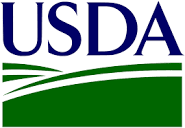Respondent - Business
Summer Meal Study (PC MAQ)
F1. Menu Planning Survey Final CLEAN
Respondent - Business
OMB: 0584-0635
Appendix F1. Menu Planning Survey
1. How does <SITE NAME> provide summer meals and/or snacks?
SELECT ONLY ONE.
Prepare or cook on-site or at a central kitchen GO TO QUESTION 2
Purchase them from a private commercial vendor
Purchase them from a school food authority
Purchase them from a government vendor
Other (PLEASE SPECIFY):
1a. Why do you purchase meals instead of preparing them on-site or at a central kitchen?
SELECT ONE OR MORE.
Do not have kitchen facilities and equipment
Do not have staff to prepare meals
It is cost efficient to purchase meals
It allows us to serve a wider variety of foods
Other (PLEASE SPECIFY):
1b. Who delivers the food to <SITE NAME> everyday?
Sponsor or someone hired by sponsor
Private vendor
School food authority staff
Government vendor
<SITE NAME> staff or someone hired by <SITE NAME>
Other (PLEASE SPECIFY):
2. In serving summer meals to children, which of the following meal patterns does <SITE NAME> follow?
SELECT ONLY ONE.
Summer Food Service Program (SFSP) GO TO QUESTION 2b
Child and Adult Care Food Program (CACFP) GO TO QUESTION 2b
National School Lunch Program (NSLP)/School Breakfast Program (SBP)
2a. Why does <SITE NAME> use National School Lunch Program (NSLP) and/or School Breakfast Program (SBP) meal pattern requirements during the summer?
SELECT ONE OR MORE.
No need to re-train staff
School menus provide good variety
Do not want to plan new menus
Children like the school-year menus
Cost effective
Use same vendor as school year
They are required because <SITE NAME> is in the Seamless Summer Option
Other (PLEASE SPECIFY):
2b. Does <SITE NAME> use cycle menus?
A cycle menu is a menu that is different every day but repeats after a certain number of days or weeks.
Yes What is the length of the cycle for the menu?
1 week
2 weeks
3 weeks
4 weeks
Other (PLEASE SPECIFY):
No
3. Which of the following factors are considered in planning menus for <SITE NAME> for the summer?
SELECT ONE OR MORE.
Availability of kitchen facilities to prepare and/or store food
Preferences of children
Predominant age of children being served
Types of meals served (i.e., breakfast, lunch, supper, snacks)
Staff skills
Cost
Type of eating facilities available at <SITE NAME>
Local
or cultural practices Please
list the local or cultural practices that influence menu
planning
for <SITE NAME>.
Other (PLEASE SPECIFY):
4. Which of the following menu planning tools and resources have you used to plan summer meals?
SELECT ONE OR MORE.
USDA Team Nutrition materials
USDA MyPlate materials
USDA Healthy Meals Resource System
USDA Summer Meals Toolkit
USDA What’s Cooking?
USDA Recipe Bowl
Institute of Child Nutrition materials
Tools and resources developed by the State agency
Other (PLEASE SPECIFY):
I haven’t used any menu planning tools or resources to plan summer meals
5. Are there other tools and resources you need to plan summer meals but do not have?
No
Yes (PLEASE SPECIFY):
6. Did you have any challenges in accessing or implementing menu planning tools and resources?
Yes
No GO TO QUESTION 7
6a. What were the challenges you had in accessing or implementing menu planning tools and resources?
SELECT ONE OR MORE.
Do not know of any meal planning tools and resources
Do not have staff available to access or implement meal planning tools and resources
Do not have internet service to access online materials
Do not know how to obtain hard copies of materials
Not able to locate materials in the language we need
Materials are not written at appropriate level for what we need
Materials are not user-friendly
Other challenge(s) (PLEASE SPECIFY):
7. How often does <SITE NAME> use local foods?
Local foods are those that are grown, produced and/or processed in the area.
SELECT ONLY ONE.
Every day/almost every day
2 to 3 times per week
Once a week or less
Never GO TO QUESTION 8
Don’t know/Not sure GO TO QUESTION 8
7a. Did <SITE NAME> purchase any of the following foods from local growers, producers, processors, and/or manufacturers?
SELECT ONE OR MORE.
Fruits
Vegetables
Fluid Milk
Other dairy (e.g., cheese)
Meat/Poultry
Eggs
Seafood
Plant based protein items such as beans, seeds, nuts
Grains/flour
Bakery Products
Herbs
Other product type (PLEASE SPECIFY):
Did not purchase any local foods
8. How often do the summer meals and snacks include fresh fruits and vegetables?
Fresh fruits and vegetables are generally in their original form or sliced or peeled to make them easy to eat. Fresh fruits and vegetables are not canned, frozen or dried.
SELECT ONLY ONE.
Every day or almost every day
2 to 3 times per week
Once a week or less
Never
Don’t know/Not sure
9. How often does <SITE NAME> serve USDA Foods (sometimes known as ‘commodity foods’) in summer meals?
SELECT ONE OR MORE.
USDA Foods are not available to <SITE NAME> GO TO QUESTION 10
Every day or almost every day
2 to 3 times per week
Once a week or less
Never GO TO QUESTION 10
Don’t know/Not sure GO TO QUESTION 10
9a. What types of USDA Foods are used to prepare summer meals?
SELECT ONE OR MORE.
Fruits
Vegetables
Fluid Milk
Other dairy (e.g., cheese)
Meat/Poultry
Eggs
Seafood
Plant based protein items such as beans, seeds, nuts
Grains/flour
Bakery Products
Herbs
Other product type (PLEASE SPECIFY):
Did not purchase any USDA foods
10. To what extent are each of the following factors a challenge or not a challenge in planning or preparing healthy meals for <SITE NAME>?
SELECT ONLY ONE BOX PER ROW.
|
Not a challenge |
Somewhat of a challenge |
Challenge |
Significant challenge |
Not sure |
Understanding meal pattern requirements |
|
|
|
|
|
Availability of foods that meet the requirements |
|
|
|
|
|
Food cost |
|
|
|
|
|
Staff time |
|
|
|
|
|
Equipment to prepare food |
|
|
|
|
|
Equipment to transport food |
|
|
|
|
|
Kitchen facilities |
|
|
|
|
|
Other
(PLEASE SPECIFY): |
|
|
|
|
|
Thank you for participating in the Summer Meals Study.
Public reporting burden for this collection of information is estimated to average 20 minutes per response, including the time for reviewing instructions, searching existing data sources, gathering and maintaining the data needed, and completing and reviewing the collection of information. An agency may not conduct or sponsor, and a person is not required to respond to, a collection of information unless it displays a currently valid OMB control number. Send comments regarding this burden estimate or any other aspect of this collection of information, including suggestions for reducing this burden, to: U.S. Department of Agriculture, Food and Nutrition Services, Office of Policy Support, 3101 Park Center Drive, Room 1014, Alexandria, VA 22302 ATTN: PRA (0584-xxxx*). Do not return the completed form to this address.
| File Type | application/vnd.openxmlformats-officedocument.wordprocessingml.document |
| Author | Melissa Rothstein |
| File Modified | 0000-00-00 |
| File Created | 2021-01-21 |
© 2026 OMB.report | Privacy Policy

